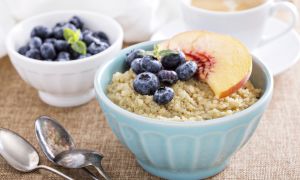The heart keeps beating thanks to special cells that are able to generate electrical activity on their own. These cells can separate charged particles and can spontaneously leak certain of the charged particles into the cells. This produces electrical impulses in pacemaker cells' which spread over the heart. The impulses cause the heart to contract. These cells perform this action more than once per second and produce a normal heart beat - 72 beats per minute.
The heart's natural pacemaker is called the sinoatrial node (SA node) and is located in the right atrium. The heart also has specialized fibers to conduct the electrical impulse from the SA node to the rest of the heart.
When the electrical impulse leaves the SA node it travels to the right and left atria, causing each to contract simultaneously. Now, the ventricles both fill with blood. The electrical impulse travels to the atrioventricular node, then to the Bundle of His and onward until it divides into the right and left bundle branches. At those branches, the electrical impulse rapidly spreads to the muscles of the right and left ventricle. Both ventricles now contract at the same time.
Continue Learning about Healthy Circulatory System
Important: This content reflects information from various individuals and organizations and may offer alternative or opposing points of view. It should not be used for medical advice, diagnosis or treatment. As always, you should consult with your healthcare provider about your specific health needs.


